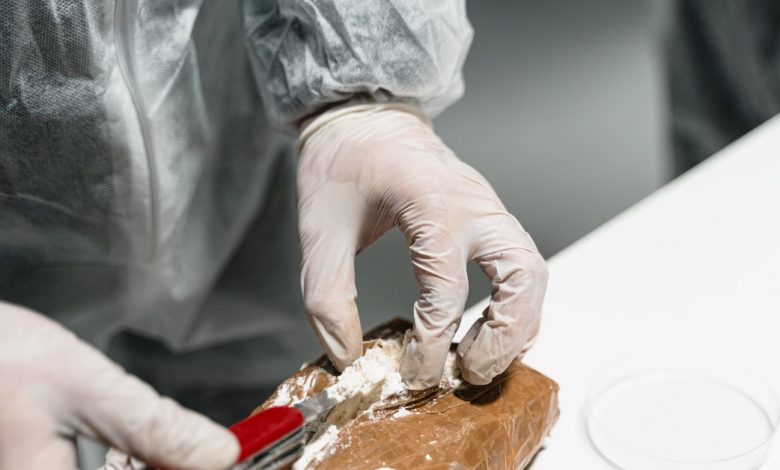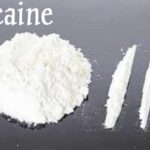How Long Does Cocaine Stay In Your System?

What is cocaine?
Cocaine is a powerfully addictive stimulant drug. They speed up messages traveling between the brain and body. Although health care providers can use it for valid medical purposes, such as local anesthesia for some surgeries, cocaine is an illegal drug. As a street drug, cocaine looks like a fine, white, crystal powder
Cocaine comes from the leaves of the coca bush (Erythroxylum coca), native to South America. The leaf extract is processed to produce three different forms of cocaine:
- Cocaine hydrochloride: a fine white powder with a bitter, numbing taste. Cocaine hydrochloride is often mixed, or ‘cut’, with other substances such as lidocaine, talcum powder or sugar to dilute it before being sold.
- Freebase: a white powder that is purer than cocaine hydrochloride.
- Crack: crystals ranging from white or cream to transparent with a pink or yellow hue. It may contain impurities.
Cocaine speeds up your whole body. You may feel full of energy, happy, and excited. But then your mood can change. You can become angry, nervous, and afraid that someone’s out to get you. You might do things that make no sense. After the “high” of the cocaine wears off, you can “crash” and feel tired and sad for days. You also get a strong craving to take the drug again to try to feel better.
No matter how cocaine is taken, it is dangerous. Some of the most common serious problems include heart attack and stroke. You are also at risk for HIV/AIDS and hepatitis, from sharing needles or having unsafe sex. Cocaine is more dangerous when combined with other drugs or alcohol.
It is easy to lose control over cocaine use and become addicted. Then, even if you get treatment, it can be hard to stay off the drug. People who stopped using cocaine can still feel strong cravings for the drug, sometimes even years later.
Cocaine is a Schedule II controlled substance, and possession is illegal under United States law. Schedule II drugs have a high potential for abuse and may lead to severe psychological or physical dependence.
How long does cocaine stay in your system?
There are several factors that come into play when estimating how long cocaine will stay in your system because every patient has physiology unique to them. Here are some major factors you should consider when trying to understand how long cocaine will stay in your body:
• Age: Typically, the younger you are, the more efficient your body functions are. The more efficient your body functions, the faster cocaine will be removed from your system.
• Amount: The higher the dose of cocaine you have been taking, the longer cocaine will take to be removed from your system.
• Genetics: Genes predispose people to different metabolic functions, which is a key factor in how your body processes drugs like cocaine. For this reason, your genetic makeup comes into play when estimating how long cocaine will remain in your system.
• Kidney and liver functions: The liver and kidneys eliminate everything you ingest, and cocaine is no exception. If your liver or kidneys are damaged, it will most likely take longer for your body to remove the cocaine from your system.
• Metabolism: Your metabolism determines how quickly you process foods, liquids, and drugs such as cocaine. If your metabolism is slow, it will take longer for your body to process and eliminate cocaine from its system than for someone with a fast metabolism.
• Usage frequency: The longer you have been taking cocaine, the longer it will remain in your system. For example, it will take longer for someone who has taken cocaine for several years to remove cocaine from the body than someone who has only been taking cocaine for a few months.
Available data from research suggest that cocaine accumulates in the body with chronic use resulting in a prolonged terminal elimination phase for cocaine and metabolites. Cocaine is rapidly absorbed, metabolized, and excreted in the urine.
After last use, cocaine or its major metabolites (major metabolites, benzoylecgonine (BE) and ecgonine methyl ester (EME), and minor metabolites, norcocaine, p-hydroxycocaine, m-hydroxycocaine, p-hydroxybenzoylecgonine (pOHBE), and m-hydroxybenzoylecgonine) typically can show up on a blood or saliva test for up to 2 days, a urine test for up to 3 days, and a hair test for months to years. A heavy user can test positive on a urine test for up to 2 weeks.
But other factors can influence how long it stays in someone’s body, such as drinking while taking cocaine may also slow its elimination from the body.
How to flush out cocaine fast
A healthy diet plays a significant role in your recovery from cocaine addiction. It restores the nutrients that were lost from substance abuse. Therefore, when eating your three meals a day, it is important to choose food that rebuilds your body’s tissue and boosts your energy levels. The right foods can accelerate your recovery, particularly during cocaine detox.
During cocaine detox, you should have access to nutritious fruits and vegetables that replenish vitamins and minerals. In many ways, a healthy diet can produce the same level of excitement and energy you felt when you were high with cocaine. The following tips can help:
Drink Enough Water: The most basic and essential food that can speed up your recovery is actually water. Your body has suffered from a lack of hydration for a long time. Although water is a neutral element – it provides no nutrients but also doesn’t harm your body in any way – it is the most basic sustenance you can intake during detox. Hydrate as much as you can in the first few days and keep drinking water throughout cocaine rehab. The oxygen in water heals your body and gives you a ton of energy.
Eat Energy-Boosting food: Cocaine addiction can drain your body of much-needed energy. When you lack energy, you are not motivated to do anything. Important food in recovery that restores energy includes:
• Healthy carbohydrates
• Leafy vegetables
• Peanuts
• Pistachios
• Almonds
These types of foods can also give you an extra kick of energy. Try to eat foods rich in iron, phosphorus, magnesium, calcium, potassium, and vitamins A, B, and E.
Lung-friendly foods: If you have been smoking crack cocaine over the last few months, your lungs have paid the price. When your lungs cannot do their job, you do not breathe in enough oxygen. Lack of oxygen causes a variety of problems throughout your body. To restore lung function and speed recovery, eat foods rich in omega-3s, magnesium, and antioxidants. Also, eat more green leafy vegetables, beans, and berries.
Brain-Friendly Food: It could be argued that no organ in your body is as affected by cocaine addiction as your brain. This is why food in recovery is a crucial element in your substance abuse treatment program. A healthy diet helps you regain memory, improve cognition, and strengthen your motor skills. You can speed recovery by eating foods such as flaxseed, salmon, green tea, avocados, ginger, lentils, tomatoes, and cocoa. They are packed with vitamins and healthy fats, which aid in restoring brain cells and mood regulation.





